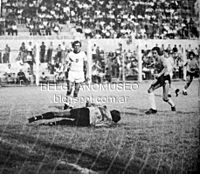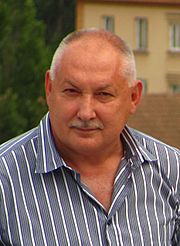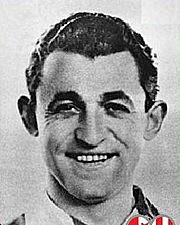Czechoslovakia national football team facts for kids
| to 1919–1993 | ||||||||||||||||||||||||||||||||
|---|---|---|---|---|---|---|---|---|---|---|---|---|---|---|---|---|---|---|---|---|---|---|---|---|---|---|---|---|---|---|---|---|
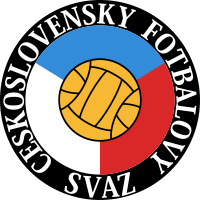 |
||||||||||||||||||||||||||||||||
| Association | Czechoslovak Football Association | |||||||||||||||||||||||||||||||
| Most caps | Zdeněk Nehoda (91) | |||||||||||||||||||||||||||||||
| Top scorer | Antonín Puč (34) | |||||||||||||||||||||||||||||||
| Home stadium | Stadion Evžena Rošického (1926–1993) | |||||||||||||||||||||||||||||||
| FIFA code | TCH | |||||||||||||||||||||||||||||||
|
||||||||||||||||||||||||||||||||
| Elo ranking | ||||||||||||||||||||||||||||||||
| Highest | 1 (24 May 1924) | |||||||||||||||||||||||||||||||
| Lowest | 29 (August 1985) | |||||||||||||||||||||||||||||||
| First international | ||||||||||||||||||||||||||||||||
(Budapest, Hungary; 5 April 1903) Post-independence (Paris, France; 24 June 1919) |
||||||||||||||||||||||||||||||||
| Biggest win | ||||||||||||||||||||||||||||||||
(Antwerp, Belgium; 28 August 1920) (Prague, Czechoslovakia; 28 October 1925) |
||||||||||||||||||||||||||||||||
| Biggest defeat | ||||||||||||||||||||||||||||||||
(Budapest, Hungary; 19 September 1937) (Glasgow, Scotland; 8 December 1937) (Hungary; 30 April 1950) (Hungary; 19 October 1952) (Zürich, Switzerland; 19 June 1954) |
||||||||||||||||||||||||||||||||
| World Cup | ||||||||||||||||||||||||||||||||
| Appearances | 8 (first in 1934) | |||||||||||||||||||||||||||||||
| Best result | Runners-up (1934, 1962) | |||||||||||||||||||||||||||||||
| European Championship | ||||||||||||||||||||||||||||||||
| Appearances | 3 (first in 1960) | |||||||||||||||||||||||||||||||
| Best result | Champions (1976) | |||||||||||||||||||||||||||||||
|
Medal record
|
||||||||||||||||||||||||||||||||
The Czechoslovakia national football team was a men's football team that played for Czechoslovakia from 1919 to 1993. It was managed by the Czechoslovak Football Association. The team was very successful, reaching the World Cup finals twice and winning the European Championship once.
When Czechoslovakia split into two countries at the end of 1992, the team was still playing in the qualifiers for the 1994 FIFA World Cup. They finished their games under a new name: Representation of Czechs and Slovaks (RCS). After that, the team was officially ended. Today, both the Czech Republic and Slovak Republic national teams are seen as the teams that continue the legacy of Czechoslovakia's football history.
Contents
History of Czechoslovak Football
Early Days: Bohemia's Team
Before Czechoslovakia became an independent country, the region of Bohemia had its own football team. They played their first international match on April 5, 1903, losing 2–1 to Hungary. Bohemia played a few more games until 1908.
In 1911, Bohemia won a special European football tournament. They beat the England team 2–1 in the final.
Between the World Wars
After World War I, Czechoslovakia became an independent country. Their new national team played its first games in 1919 at the Inter-Allied Games in Paris. These games celebrated the Allied victory in the war. Czechoslovakia won their group and then beat France 3–2 in the final.
In 1920, Czechoslovakia played in the Olympic Games in Antwerp. They had big wins against Yugoslavia, Norway, and France. However, in the final against Belgium, the team walked off the field in protest. They were then removed from the tournament.
Czechoslovakia entered the FIFA World Cup for the first time in 1934. They made it all the way to the final in Italy. They lost a close game 2–1 to the host country after extra time. Oldřich Nejedlý was a star player, scoring five goals and winning the Golden Shoe award.
The team also played in the 1938 FIFA World Cup in France. They reached the quarter-finals but lost to Brazil in a tough match known as the "Battle of Bordeaux."
After World War II
Czechoslovakia did not play in the 1950 World Cup. But they qualified for the 1954 tournament in Switzerland. They were in a tough group and were eliminated after losing to Uruguay and Austria.
They also qualified for the 1958 FIFA World Cup in Sweden. They had a big 6–1 win against Argentina. However, they lost a play-off game to Northern Ireland and did not advance.
Modern Era Success
On April 5, 1959, Czechoslovakia played in the first-ever qualifying match for the UEFA European Championship. They reached the four-team finals in France. They finished in third place after beating the hosts, France, 2–0.
Czechoslovakia qualified for the 1962 FIFA World Cup in Chile. They had a strong start, beating Spain and drawing with Brazil. They reached their second World Cup final. In the final, Josef Masopust scored an early goal, but Brazil came back to win 3–1. Masopust was later awarded the Ballon d'Or for his amazing performance.
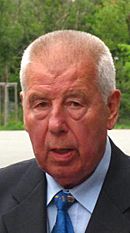
The team missed out on the 1966 World Cup and the European Championships in 1964 and 1968. They did qualify for the 1970 FIFA World Cup in Mexico. However, they lost all three of their group matches.
A big moment came in the 1976 European Championship in Yugoslavia. Czechoslovakia won their group and then beat the Soviet Union. In the final, they played against West Germany. The game was tied 2–2, so it went to a penalty shootout. Antonin Panenka scored the winning penalty with a famous chip shot. This type of penalty kick is now known as a "Panenka." Many of the players in this winning squad were Slovak.
Czechoslovakia did not qualify for the 1978 World Cup. But they did play in Euro 1980. They finished third after winning a penalty shootout against Italy. At the 1982 FIFA World Cup in Spain, they were eliminated in the group stage.
The country's last major tournament was the 1990 FIFA World Cup in Italy. They had a great start, winning 5–1 against the United States. They reached the quarter-finals, where they lost 1–0 to West Germany. The manager, Jozef Vengloš, later became the first foreign manager in English football.
The team, playing as RCS, played its very last match on November 17, 1993, against Belgium. The game ended in a 0–0 draw, meaning RCS did not qualify for the 1994 World Cup.
Kit History
|
1934–1976
|
1950–1967 (away)
|
1980–1989
|
1990 Home
|
1990 Away
|
1991-93 Home
|
1992–93 Away
|
Results and Fixtures
Tournament Records
FIFA World Cup
| FIFA World Cup record | Qualification record | ||||||||||||||||
|---|---|---|---|---|---|---|---|---|---|---|---|---|---|---|---|---|---|
| Year | Result | Position | Pld | W | D | L | GF | GA | Squad | Pld | W | D | L | GF | GA | — | |
| Did not enter | Declined invitation | ||||||||||||||||
| Runners-up | 2nd | 4 | 3 | 0 | 1 | 9 | 6 | Squad | 1 | 1 | 0 | 0 | 2 | 1 | 1934 | ||
| Quarter-finals | 5th | 3 | 1 | 1 | 1 | 5 | 3 | Squad | 2 | 1 | 1 | 0 | 7 | 1 | 1938 | ||
| Did not enter | Did not enter | ||||||||||||||||
| Group stage | 14th | 2 | 0 | 0 | 2 | 0 | 7 | Squad | 4 | 3 | 1 | 0 | 5 | 1 | 1954 | ||
| Group stage | 9th | 4 | 1 | 1 | 2 | 9 | 6 | Squad | 4 | 3 | 0 | 1 | 9 | 3 | 1958 | ||
| Runners-up | 2nd | 6 | 3 | 1 | 2 | 7 | 7 | Squad | 5 | 4 | 0 | 1 | 20 | 7 | 1962 | ||
| Did not qualify | 6 | 3 | 1 | 2 | 12 | 4 | 1966 | ||||||||||
| Group stage | 15th | 3 | 0 | 0 | 3 | 2 | 7 | Squad | 7 | 5 | 1 | 1 | 16 | 7 | 1970 | ||
| Did not qualify | 4 | 2 | 1 | 1 | 9 | 3 | 1974 | ||||||||||
| 4 | 2 | 0 | 2 | 4 | 6 | 1978 | |||||||||||
| Group stage | 19th | 3 | 0 | 2 | 1 | 2 | 4 | Squad | 8 | 4 | 2 | 2 | 15 | 6 | 1982 | ||
| Did not qualify | 8 | 3 | 2 | 3 | 11 | 12 | 1986 | ||||||||||
| Quarter-finals | 6th | 5 | 3 | 0 | 2 | 10 | 5 | Squad | 8 | 5 | 2 | 1 | 13 | 3 | 1990 | ||
| Did not qualify | 10 | 4 | 5 | 1 | 21 | 9 | 1994 | ||||||||||
| Total | Runners-up | 8/15 | 30 | 11 | 5 | 14 | 44 | 45 | — | 71 | 40 | 16 | 15 | 144 | 63 | — | |
UEFA European Championship
| UEFA European Championship record | Qualifying record | ||||||||||||||||
|---|---|---|---|---|---|---|---|---|---|---|---|---|---|---|---|---|---|
| Year | Result | Position | Pld | W | D | L | GF | GA | Squad | Pld | W | D | L | GF | GA | — | |
| Third place | 3rd | 2 | 1 | 0 | 1 | 2 | 3 | Squad | 6 | 4 | 1 | 1 | 16 | 5 | 1960 | ||
| Did not qualify | 2 | 0 | 1 | 1 | 2 | 3 | 1964 | ||||||||||
| 6 | 3 | 1 | 2 | 8 | 4 | 1968 | |||||||||||
| 6 | 4 | 1 | 1 | 11 | 4 | 1972 | |||||||||||
| Champions | 1st | 2 | 1 | 1 | 0 | 5 | 3 | Squad | 8 | 5 | 2 | 1 | 19 | 7 | 1976 | ||
| Third place | 3rd | 4 | 1 | 2 | 1 | 5 | 4 | Squad | 6 | 5 | 0 | 1 | 17 | 4 | 1980 | ||
| Did not qualify | 8 | 3 | 4 | 1 | 15 | 7 | 1984 | ||||||||||
| 6 | 2 | 3 | 1 | 7 | 5 | 1988 | |||||||||||
| 8 | 5 | 0 | 3 | 12 | 9 | 1992 | |||||||||||
| Total | 1 Title | 3/9 | 8 | 3 | 3 | 2 | 12 | 10 | — | 56 | 31 | 13 | 12 | 107 | 48 | — | |
Olympic Games
| Olympic Games record | ||||||||||
|---|---|---|---|---|---|---|---|---|---|---|
| Year | Result | Position | Pld | W | D | L | GF | GA | Squad | |
| Withdrew | ||||||||||
| Did not enter | ||||||||||
| Disqualified | 4 | 3 | 0 | 1 | 15 | 3 | Squad | |||
| Second round | 9th | 3 | 1 | 1 | 1 | 6 | 4 | Squad | ||
| Did not enter | ||||||||||
| Did not qualify | ||||||||||
| Silver medal | 2nd | 6 | 5 | 0 | 1 | 19 | 5 | Squad | ||
| Group stage | 9th | 3 | 1 | 1 | 1 | 10 | 3 | Squad | ||
| Did not enter | ||||||||||
| Gold medal | 1st | 6 | 4 | 2 | 0 | 10 | 1 | Squad | ||
| Withdrew | ||||||||||
| Did not qualify | ||||||||||
| Total | 1 Gold medal | 5/17 | 22 | 14 | 4 | 4 | 60 | 16 | — | |
Player Records
| Rank | Player | Caps | Goals | Career |
|---|---|---|---|---|
| 1. | Zdeněk Nehoda | 90 | 31 | 1971–1987 |
| 2. | Marián Masný | 75 | 18 | 1974–1982 |
| Ladislav Novák | 75 | 1 | 1952–1966 | |
| 4. | František Plánička | 73 | 0 | 1926–1938 |
| 5. | Karol Dobiaš | 67 | 6 | 1967–1980 |
| 6. | Josef Masopust | 63 | 10 | 1954–1966 |
| Ivo Viktor | 63 | 0 | 1966–1977 | |
| 8. | Ján Popluhár | 62 | 1 | 1958–1967 |
| 9. | Antonín Puč | 60 | 34 | 1926–1938 |
| 10. | Antonín Panenka | 59 | 17 | 1973–1982 |
| Rank | Player | Goals | Caps | Ratio | Career |
|---|---|---|---|---|---|
| 1. | Antonín Puč | 34 | 60 | 0.57 | 1926–1938 |
| 2. | Zdeněk Nehoda | 31 | 90 | 0.34 | 1971–1987 |
| 3. | Oldřich Nejedlý | 28 | 43 | 0.65 | 1931–1938 |
| Josef Silný | 28 | 50 | 0.56 | 1925–1934 | |
| 5. | Adolf Scherer | 22 | 36 | 0.61 | 1958–1964 |
| František Svoboda | 22 | 43 | 0.51 | 1927–1937 | |
| 7. | Marián Masný | 18 | 75 | 0.24 | 1974–1982 |
| 8. | Antonín Panenka | 17 | 59 | 0.29 | 1973–1982 |
| 9. | Jozef Adamec | 14 | 44 | 0.32 | 1960–1971 |
| Tomáš Skuhravý | 14 | 43 | 0.33 | 1985–1993 |
Honours and Achievements
Major Competitions
Regional Titles
- Central European International Cup
- Champions (1): 1955–60
- Runners-up (2): 1927–30, 1948–53
Other Titles
- Interallied Games
- Champions (1): 1919
Summary of Medals
| Competition | Total | |||
|---|---|---|---|---|
| World Cup | 0 | 2 | 0 | 2 |
| European Championship | 1 | 0 | 2 | 3 |
| Olympic Games | 1 | 1 | 0 | 2 |
| Total | 2 | 3 | 2 | 7 |
Images for kids
See also
 In Spanish: Selección de fútbol de Checoslovaquia para niños
In Spanish: Selección de fútbol de Checoslovaquia para niños
- Czechoslovakia national under-21 football team
- Czechoslovakia women's national football team
- Czech Republic national football team
- Slovakia national football team
 | Misty Copeland |
 | Raven Wilkinson |
 | Debra Austin |
 | Aesha Ash |


